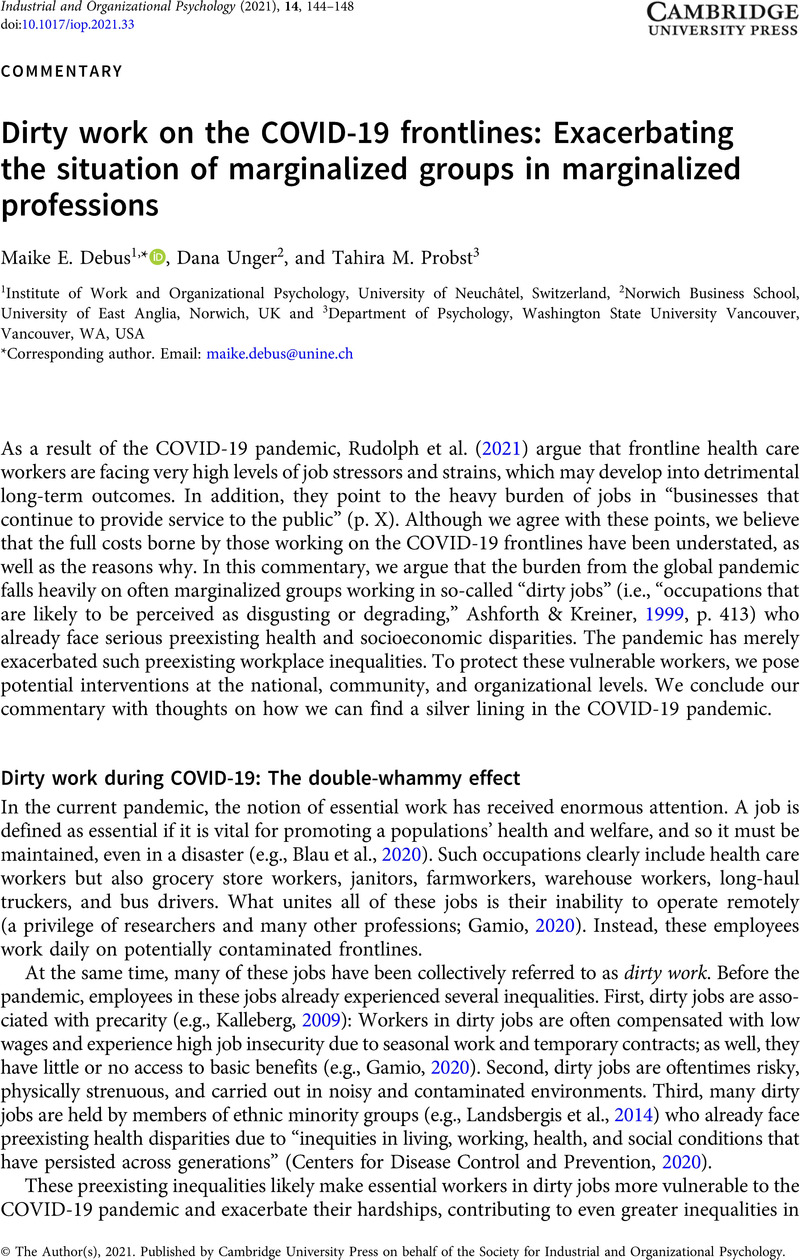Crossref Citations
This article has been cited by the following publications. This list is generated based on data provided by Crossref.
Kollias, Nathaniel S.
Strand, Elizabeth B.
Kogan, Lori R.
Houlihan, Kendall E.
Thompson-Iritani, Sally
Hoenig, Donald E.
Ng, Zenithson Y.
and
Hart, Lynette A.
2023.
Psychological implications of humane endings on the veterinary profession.
Journal of the American Veterinary Medical Association,
Vol. 261,
Issue. 2,
p.
185.
Galazka, Anna Milena
and
Wallace, James
2023.
Challenging the ‘dirty worker’—‘clean client’ dichotomy: Conceptualizing worker‐client relations in dirty work.
International Journal of Management Reviews,
Vol. 25,
Issue. 4,
p.
707.
Valenzuela, Francisco
Manolchev, Constantine
Böhm, Steffen
and
Agar, Celal Cahit
2023.
Working through (mis)recognition: Understanding vulnerability as ambivalence in precarious worker subjectivity.
Human Relations,
Pronizius, Ekaterina
2023.
Encyclopedia of Heroism Studies.
p.
1.
Sischka, Philipp E.
Schmidt, Alexander F.
and
Steffgen, Georges
2024.
COVID-19 countermeasures at the workplace, psychological well-being, and mental health - a nationally representative latent class analysis of Luxembourgish employees.
Current Psychology,
Vol. 43,
Issue. 14,
p.
13202.
Donnelly, Rachel
and
Schoenbachler, Adam K.
2024.
The Mental Health of Essential Workers during the COVID-19 Pandemic: The Role of U.S. State-level Policies.
Society and Mental Health,





